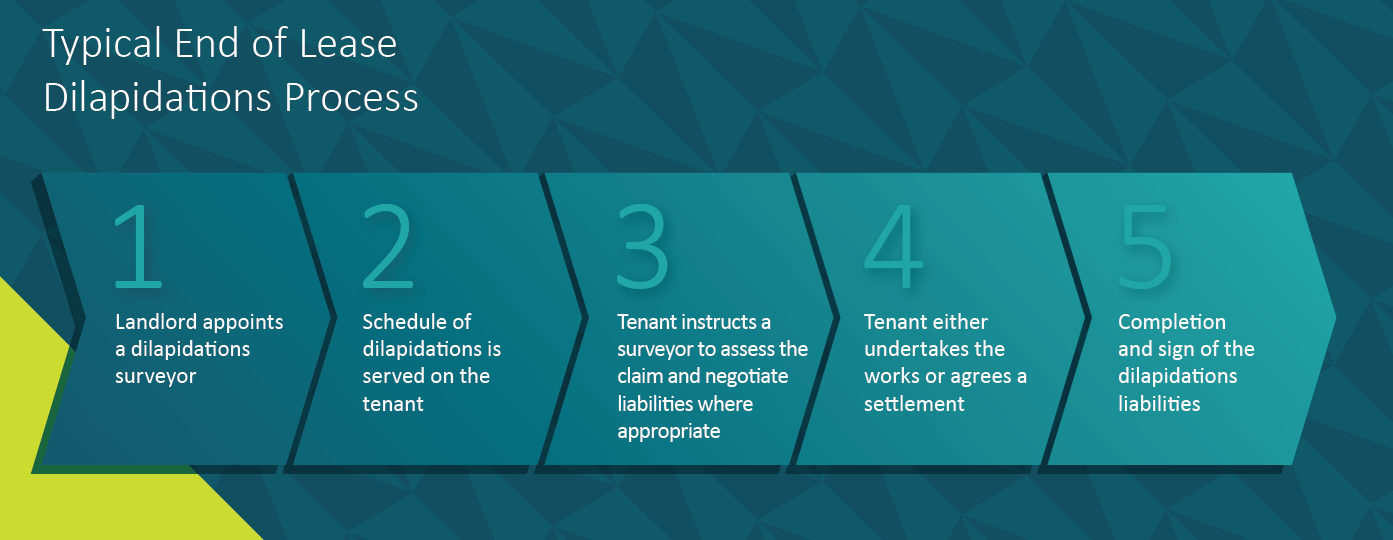Dilapidations claims should be professionally planned and handled based on a sound legal understanding of the Lease terms and conditions. Both Landlords and Tenants should take proactive advice to plan for their rights and liabilities in this complex area of the law as Leases reach their expiry.
When to instruct professional advice?
Early planning can achieve significant benefits for both Landlords & Tenants:
- Landlords – should plan ahead to assess the cost of repairs and reinstating the configuration of the property in accordance with the Lease. This may even extend to considering additional investment and improvements to the property to coincide with the Lease expiry.
- Tenants – should review their business planning risks & liabilities that coincide with their lease expiry / renewal and longer-term strategic property needs.
Why instruct Compass Building Consultancy for Dilapidations Claims?
- Expertise
- Specialists in Dilapidations
Dilapidations is littered with case law, legislation, and protocols. This can be a daunting prospect for Landlords and Tenants, with financial consequences for the unwary. Our role is to assess the Lease conditions, identify breaches in Lease clauses that relate to the condition of a property and set out the necessary works and associated remedial costs. We often work in conjunction with a client’s property solicitor.
- Settlement & Negotiations – Compass have a team of experienced Dilapidations Surveyors that have a proven track record of achieving fair and realistic settlements.
- Terminal & Interim Schedule of Dilapidations and Repairs Notices - We can provide advice on all scenarios, whether it's an ongoing lease term or at lease expiry.
- Legal Advice - is fundamental to a successful settlement. Compass works closely with a client’s solicitor to agree then settle Dilapidations claims to meet the Lease conditions. Our knowledge of Lease conditions combined with our experience and skills as RICS Surveyors achieves the optimum outcome for our clients.
Our understanding of lease terms coupled with our honed negotiation skills provide our clients with successful outcomes. We achieved a substantial settlement for one of our private clients when HSBC vacated their property.
Daniel Leaf – DirectorOur experience demonstrates time and time again why it is so important to consider dilapidations at an early stage in the Lease process; to develop a strategic approach to suit the requirements of a client’s business. The Civil Procedure Rules also govern the way Dilapidations claims are handled within the ‘Dilapidations Protocol’, particularly concerning timescales, so a surveyor should be engaged with plenty of time to follow the prescribed process.
It is vital to fully understand the Lease and to have an RICS Building Surveyor prepare a Schedule of Condition to assess and protect both the Landlord and Tenant when it comes to a Dilapidations claim.
Settle Dilapidations Prior to Lease Expiry
The timely settlement of a Dilapidations claim ahead of Lease expiry is advantageous to both Landlord and Tenant and can avoid a protracted legal dispute beyond the lease end. An early settlement provides adequate time for both Landlord and Tenant to agree the basis of the Dilapidations claim, deal with negotiations and complete agreed works.
When appropriate we recommend instructing periodic inspections to assess any work that has been carried out, including Planned Maintenance. This provides assurances to both Landlord and Tenant that the property is being maintained in accordance with the covenants of the Lease.

In summary
- Legal service – we provide information and advice about existing lease terms and conditions in relation to your potential liabilities and liaise with your legal advisors as appropriate.
- Dispute resolution – we offer a commercial approach to dilapidation negotiations for tenant or landlord.
- Schedules of condition – we can protect against future liabilities by assessing the property at an early stage.

